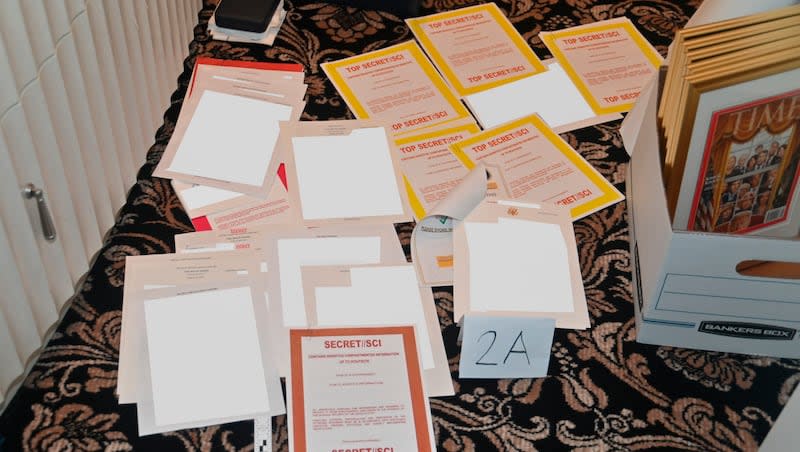Judge calls for more evidence in Trump’s classified documents case

- Oops!Something went wrong.Please try again later.
- Oops!Something went wrong.Please try again later.
In a new order on Thursday, the judge overseeing former President Donald Trump’s classified documents case called for more evidence regarding the FBI warrant used to search Trump’s Mar-a-Lago property in 2022 and to reevaluate a previous judge’s ruling that permitted prosecutors to breach attorney-client privilege for one of Trump’s former lawyers, Evan Corcoran, under the crime-fraud exception.
If U.S. District Judge Aileen Cannon rules in favor of the defense, the indictment brought against Trump by special counsel Jack Smith would most likely be reduced in its charges. Delaying the case is also in Trump’s favor, and having another hearing will do just that, something the prosecution does not want to happen, considering Trump is the presumptive presidential nominee.
Back in 2023, the crime-fraud provision, which was argued in the Federal District Court in Washington, was a milestone achievement for Smith and his team. In the ruling by Judge Beryl A. Howell, Washington’s chief federal judge at the time, he concluded that Corcoran’s legal work was likely utilized to commission a crime.
“Defense lawyers are ordinarily shielded from being forced to testify about their confidential conversations with their client but can be compelled to do so if prosecutors can show that their legal services were used in furtherance of a crime — a doctrine known as the crime-fraud exception,” according to The Associated Press.
Cannon will reexamine the wording of the search warrant used to confiscate evidence from Mar-a-Lago and the Justice Department’s reliance on Corcoran’s testimony to support the obstruction aspect of the case, which could potentially favor the defense.
Cannon did, however, agree with Smith’s team, determining that none of the alleged omissions mentioned by the defense affected the existence of sufficient probable cause for prosecutors to search the property.
“Even accepting those statements by the high-level FBI official, the motion offers an insufficient basis to believe that inclusion in the affidavit of that official’s perspective (or of the dissenting views of other FBI agents as referenced generally in his testimony) would have altered the evidentiary calculus in support of probable cause for the alleged offenses,” she wrote in her order.
“Further, insofar as the motion characterizes the omitted information as a material misrepresentation in the ‘request for sealing’ section of the affidavit (rather than as an omission), the court agrees with the special counsel that the sealing section does not undermine the probable cause set forth in the affidavit.”
Cannon didn’t set a date for the additional hearings and has received criticism — including from Smith’s office — for seeming to push back the start of the trial. She defended her actions in the order.
“There is a difference between a resource-wasting and delay-producing ‘mini-trial,’ on the one hand, and an evidentiary hearing geared to adjudicating the contested factual and legal issues on a given pre-trial motion to suppress, on the other.”
She added, “It is the obligation of this court to make factual findings afresh on the crime-fraud issue. And a standard means by which to make such findings — as is customary in criminal suppression litigation — is following an evidentiary hearing at which both sides can present evidence (documentary and testimonial, as applicable).”

